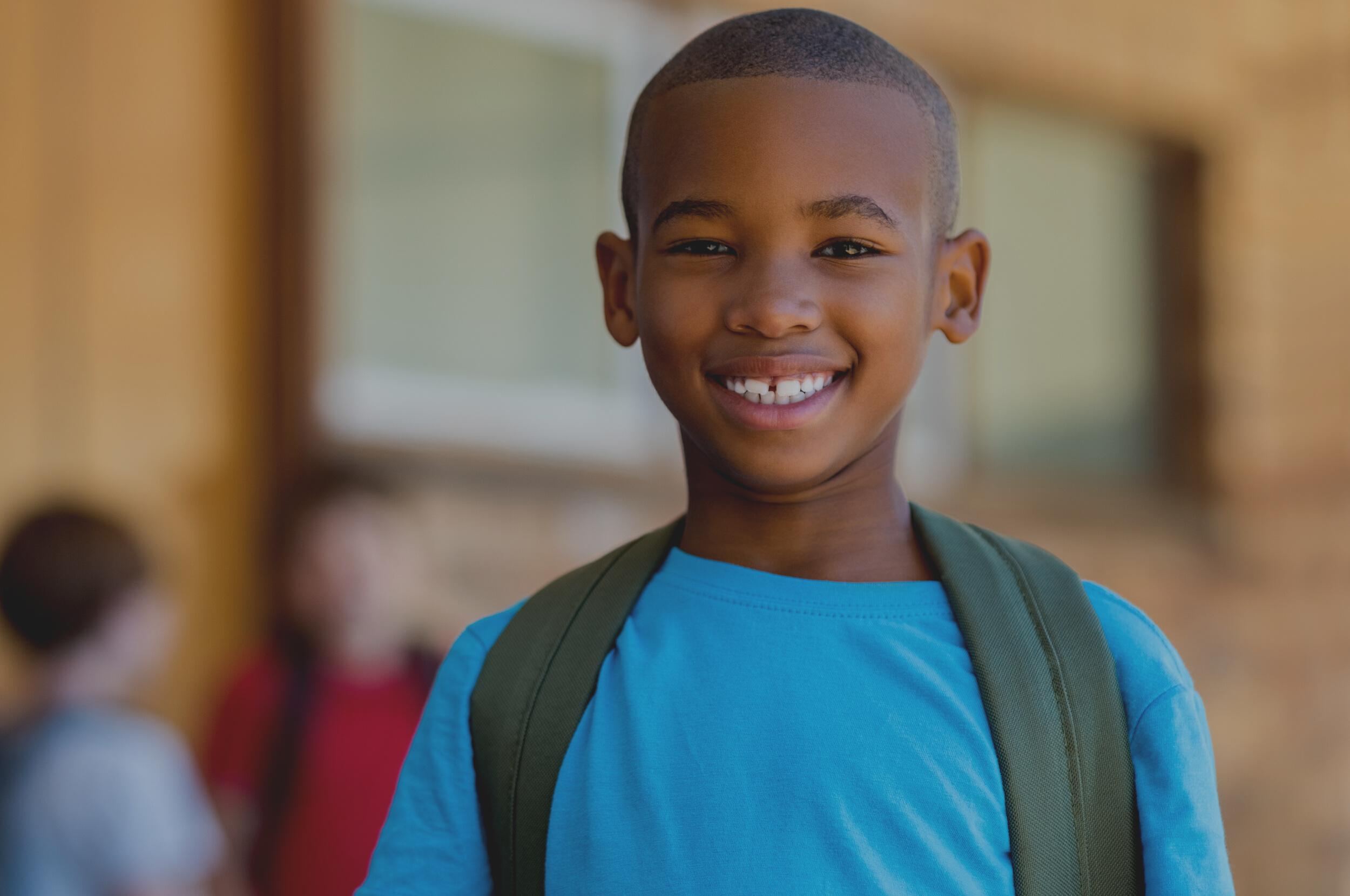Our Hair Care Our Skin Care







When Black Children and Young People are placed in the Care System, it is vitally important for everyone in Children’s Social Care, to know what is needed to raise and care for us along with knowing how to raise and care for us. Doing so will help us have a positive sense of who we are It will help us to know how to love and care for ourselves and it will help us to accept and embrace our community, culture, identity and heritage.
Now whilst there are many things to learn about raising us, we’d like to use this space to focus on Our Hair Care and Our Skin Care.
In 2021, we released our Black Care Experience Survey and asked those who were and are Black and In Care to respond and share their views on how they were raised and cared for
Please note at The Black Care Experience we define Black as a Child and Young Person whose Ethnic Origin is either African, Caribbean including Mixed Race with African or Caribbean Heritage.
Here’s how they responded to this statement:
My Foster Carer/Residential Staff/Social Worker understood/understands my Hair Care and Skin Care...
“The social workers, although some were black, did not take in the needs of my hair and skincare when I was placed in a foster home with white parents”.
“We were made to sit weekly to learn how to scrub ourselves clean using floor scrubbing brushes.
Those of us who had softer curls were made to brush it straight, and often our hair was kept short so that curls wouldn’t form.
Skin care didn’t occur until aged 15/15 (Parents of friends from schools gave products and explained importance), instead we would be paraded in public... The phrase used was “Their skins dried because of their colour”).
“My birth mother tried to explain need for constant skin & hair hydration, proper combing/brushing/plaiting-I ended up having ‘Grace Jones’ hi-top due to lack of proper care-scalp burned by chemical straightening treatment at the age of 12yo”.
“It was a problem at times but they did try their best. However, we had Caribbean staff occasionally work at my residential home and they looked after my hair too. My family would do my hair, so I had that support”.
“I was placed with a Pakistani family for a long time. They did not know anything about black culture. They were not interested in it and considered it to be ” beneath them”. But they understood a little about black hair. I was lucky that their daughter was good with hair in general, and she was able to do black hair too. She used to cainrow my hair when I was young. They took me to a black hairdresser occasionally for a relaxer and their daughter learnt how to do this too. So she started relaxing my hair at home. But they never knew anything about the basics (moisture, covering hair at night, deep conditioner etc.)”.
“Hair and skincare was not talked about. I wish I was placed with a Black family who understood my needs. I was asked about culture in a curious polite way but nothing more”.
“I was eventually fostered by a Caribbean family who had to sort out my hair as it was extremely matted”.
“When I first came into care my eczema flared up severely on my face. I wasn’t taken to the GP for a long period of time and could not get the cream I needed.
My foster carer relaxed my hair at age 11. Prior to that I did not have a relaxer”.
“I was placed with Jamaican Foster Carers and my Parents are Jamaican. I’m not sure if my Social Worker understood about my Hair Care and Skin Care”.
“My entire fostering team were white except one who only appeared during family visits even then never spoke about my needs”.
“My second Foster Carer she was white and she and she didn’t really understand how to look after my hair properly but she got some help from my social worker and our hairdressers”.
“My white foster carer cut off my hair as she wasn’t sure as to how to maintain it and that really left me distraught to some extent. I would always wear a hat and hated having to go into primary with my head shaved”.
“My Foster Carer was Black, same culture but still did not quite know what to do with my hair. In fact lol it all broke off On special occasions she would take me to the Black hairdressers which was nice, but usually lol my hair was eat out- a whole mess. So perhaps Afro-Caribbean Hair should be a course taught to all Foster carers regardless of race and Black children in care. But things like cream for my skin she provided, she didn’t have me looking all ashy lol.
“I was placed into care when I was 15 and my experience was terrible my first foster carer gave me things to lighten my skin as I was not considered beautiful enough I was to dark I had snake skin is what her and her partner referred to it..”
“Foster careers tried but residential care made no effort whatsoever”.
“The social worker of me and my siblings were frequently, changing and were often of a different culture and did not understand when I was explaining my needs were not being met”.
“I grew up in a Caribbean household despite both my parents being African. I believe I lost my identity and culture and I was forced to assimilate to the Caribbean culture which led to me having an identity crisis.
But my Foster Carer being black meant that she understood my needs such as having eczema and having to get my hair braided every month”.
“My white foster mum, later my adoptive mum, braided my hair. She understood what it meant to have black children and that our hair and skin was different from hers. That it needed looking after differently from her own”.
“Homemade Afro haircuts by an inexperienced foster career/ hairdresser! Do I need to say more - I was subjected to ridicule and bullying at high school - "umbrella head" "helmet head". Skin often dry & cracked as young child. Black identity never formed during those early childhood years and so I would psychologically function as a white child e.g. scared of black people”.
“All foster carers should know how to look after black hair”.
“I didn't notice as to whether my Social Worker understood about my Identity, Culture, Hair Care and Skin Care. I guess she thought all was well in that area because I was culturally matched”.
“Social services should be paying for my hair to get done every 4 weeks. As it got to a point that my Foster Career stopped paying for it and I had to pay for it myself”.
More of their responses can be found in our Black Care Experience Report 2021 here.
We have since heard from more Black Care Experienced who echo the above responses and shared the following:
“When I went into care at 14, I had no idea how to look after and wash my hair. I would use the wrong products, and this would ruin my hair. There wasn’t anyone in my placement that could support me with this”.
“Young people who are going to the hairdressers feeling stressed about the length of the time, their white foster carers need to stay in the hairdressers.”
“My hair was cut very short into a small afro which I completely looked after by myself. Consequently, it would get matted and that again would result in my hair being cut short. This led to me not only not properly learning how to take care of my hair until I was much older, but it knocked my confidence and image as a black girl. I had a similar experience with my next foster care who took my hair to a white salon to be 'thinned' as it was too thick for her to manage. I only realised the impact of this much later on and it took many years to overcome. I began to be ashamed of the fact I was different as it was made out to be problematic and an inconvenience for my white foster carers. Finally, I was put into foster care with a black Caribbean family…my foster carer would also wake up early every morning to help me do my hair, something which I greatly appreciate now.”
“They take me to an African Auntie hairdresser. She always cornrows my hair and it’s too tight and I have headaches. She tells my Foster Carer that if it’s tight it will stay neater for longer.”
“It hurts when they (the hairdressers) do my hair. I don’t want to go.”
“They (Residential Staff) took me to a Turkish Barber and he messed up my hairline. I put on my baseball cap as soon as I got home and I told them (the Residential Staff) I’m not going to school. They didn’t get it or my Social Worker.”
“My Foster Carer, tried to put cooking olive oil on my skin and in my hair.”
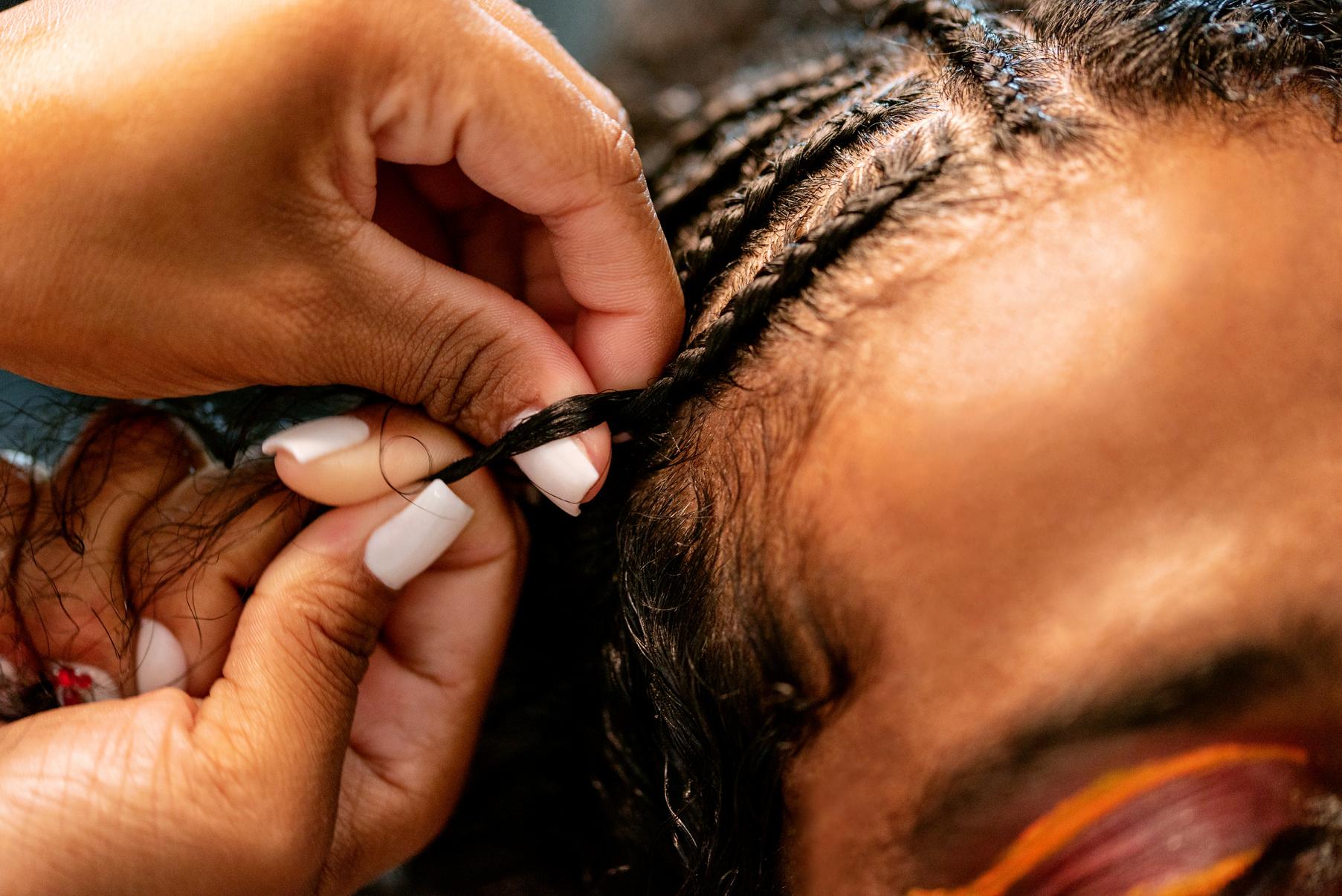
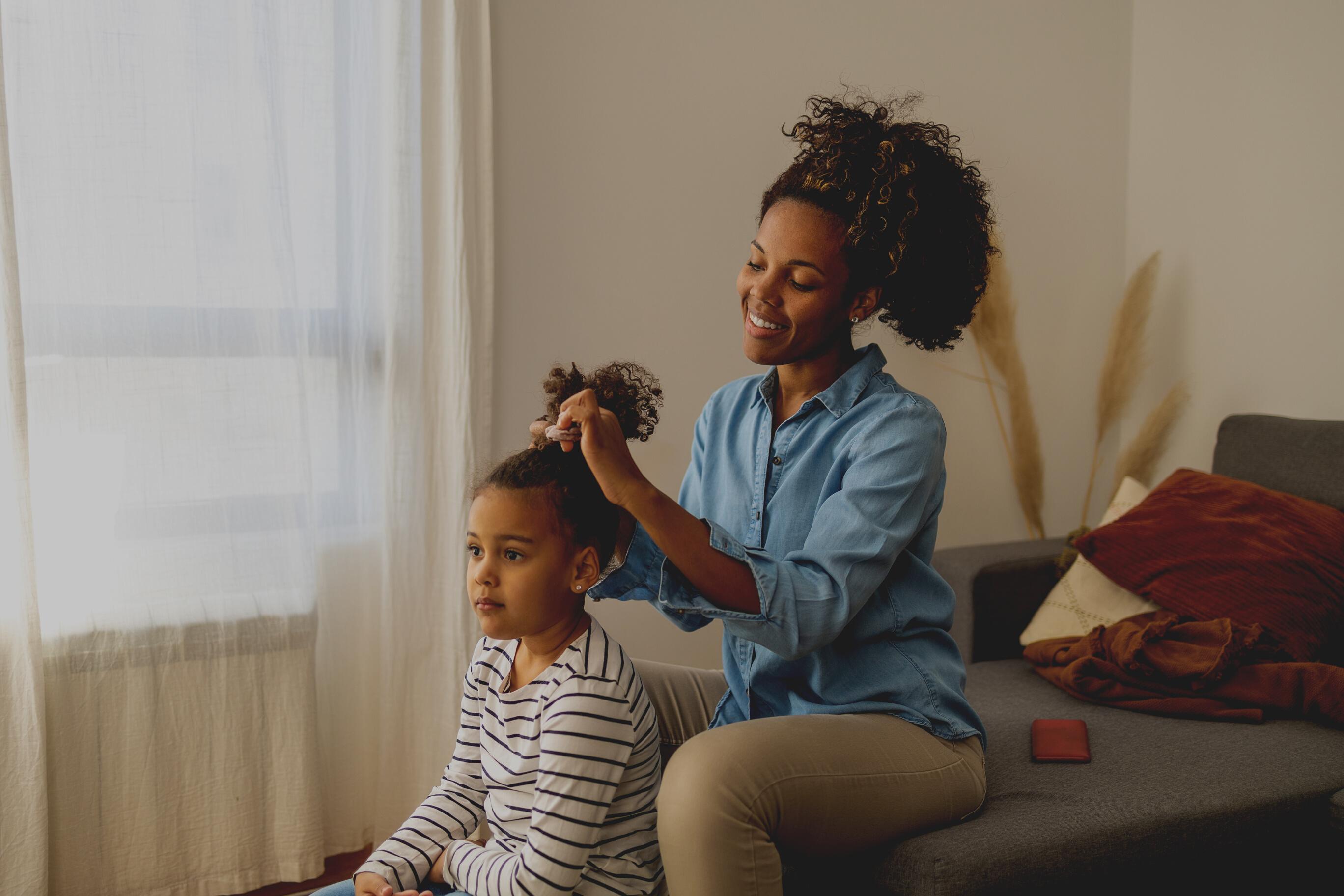
REACH RATE
In the light of these responses, we took the time to gain insight and expertise on appropriate Hair Care for Black Children and Young People in Children’s Social Care, from:
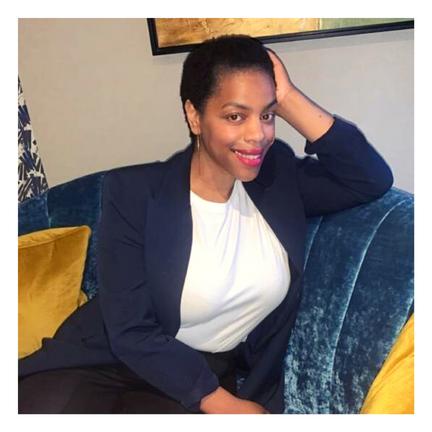
Salem Wynter-Baxter Founder of Root2tip Eco, Cosmetic Scientist, Trainee Trichologist, Afro hair Strategist
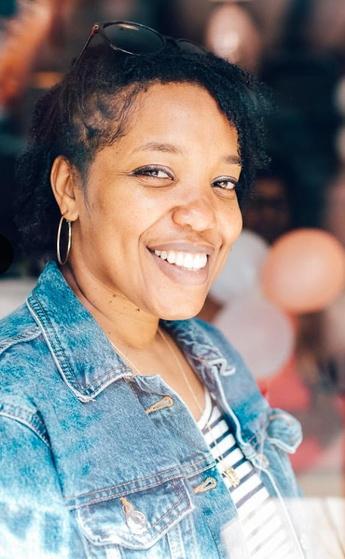
Portia Louis Managing Director of Nurture Academy
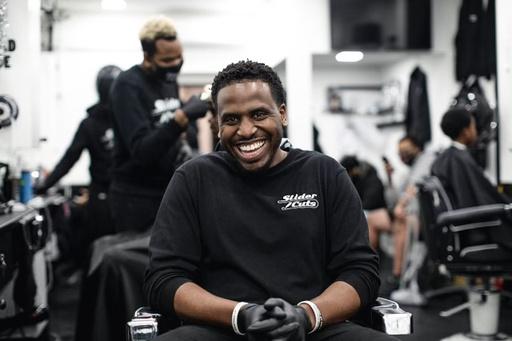
Mark Maciver aka SliderCuts Owner of SliderCuts Studios, Barbershop
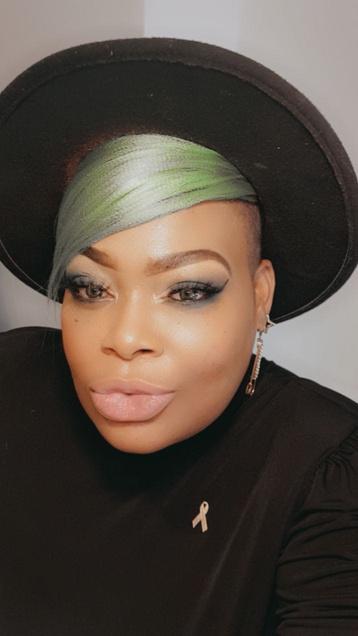
Natalie Owner of Curls & Kinks Contemporary Natural Hair Studio
Salem, tell us about Root2tip Eco
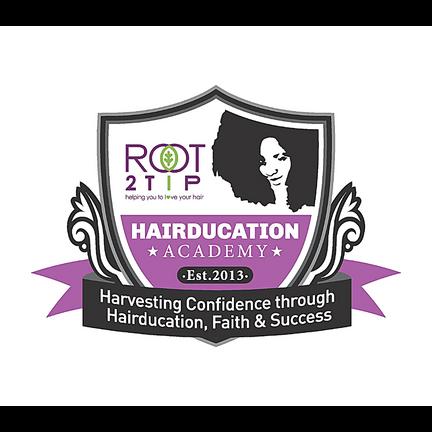
I started Root2tip in 2008 We specialise in manufacturing premium quality afro hair care products that provide a science-backed solution to the everyday hair concerns people with textured hair have. We have done so for over 10 years as we noticed that black hair had been underserved by mainstream beauty companies
We also provide strategies for the care and maintenance of afro and curly hair in different walks of life We run workshops/master classes for foster carers, adopted parents and multicultural families who may be used to straight hair but have children with afro hair.
We offer Hairducation to children, parents and anyone who wants to improve the health of their hair but lacks the knowledge. We have just completed a white paper on the care of Afro hair in different scenarios, including children in the care system The Afro Hair White paper will be released this year with suggestions and recommendations.
Do all Black Children have the same hair type?
Black children have very varied hair textures, there is not a one-size fits all approach when caring for a child's hair However, there is a general rule of thumb in terms of daily hair maintenance and washing etc
A black child’s hair is as unique as an individual fingerprint Some have wavy hair; some will have a tightly coiled hair texture and most of them will have a combination of textures.
How can we find out our hair type?
Hair types are broadly based on a system of putting the hair into categories of typing from 1-4, 1 being straight hair, and 4 being afro hair It really is quite subjective as types will overlap
Determining porosity is far more important The porosity of your child's hair relates to the ability to maintain moisture Hair types are not very useful
How can we find the right products for our hair? And what products should we avoid?
In general terms natural products for natural children’s hair are far more beneficial, we have created a sample pack of products that can be used on all hair textured hair types, to aid in detangling, adding moisture and styling the hair. The right product will leave the hair healthy and easier to manage. Our range of products meets the scientific need afro hair presents despite the texture
Black children are more susceptible to endocrine disruption, down to synthetic products than their white counterparts Natural products although more expensive are a necessity. Our most loved product by all our foster carers is our Honey rain juice, as it makes afro hair easier to style and detangle
For Black Girls and Black Boys, how often should our hair be washed?
The hair should be washed at least 1 x a week This is for both boys and girls Grooming with daily moisture is essential for the health of the hair and the child’s self-esteem.
Describe/Detail the hair care/hair grooming process (the steps e.g. detangle, wash, condition…)
In general, a black child's hair must be treated with extreme care Washing the hair should be followed by conditioning the hair. Gentle detangling using our Honey rain juice will reduce tears. Use the hands first. We employ the Root2tip sandwich moisture method, so we use our water-based Honey rain juice spray, a Cream to layer on top then a final product to seal the moisture in This will allow the hair to stay moisturised for longer.
Is the process of thinning good for our hair? What is the thinning process?
Thinning the hair is not used in the afro hair community on children, it's usually used on processed hair or wigs to style the hair and reduce the wig volume It is not recommended at all for black children and can be quite traumatic
What happens to our hair when it is straightened?
Applying heat to straighten afro hair makes the hair weaker and more inclined to breakage
What hairstyles help our hair to grow healthily?
Low manipulation styling is best, I suggest braids, Twists and hairstyles that are not tight on the scalp For boys, if they want to wear their hair longer the same advice applies. Otherwise, boys need to have the option of a regular haircut dependent on how fast the child's hair grows
How long should we wear braid extensions?
Braids can be worn for up to 4-6 weeks if cared for well
How can we find the right products for our hair? What products should we avoid?
Avoid unnatural products such as gels, and mousses that are designed for European hair, and avoid mineral oil-based products that have unhealthy silicones, and alcohol in their products. Keep the products as natural as possible because black children use them at a higher frequency
At Root2tip we have developed a range of products that are suited to a black child's hair, that will improve the hair health, appearance and overall management We have done so with the absence of harsh chemicals
Gels and Edges – Black teens in care want to follow hair trends, and so using gels and edge control on the hair is something to be done with caution Excessive usage will lead to alopecia, this in effect leads to more hair anxiety. However, a teenager should be given the opportunity to express their hair how they see fit to feel comfortable
Matted and Tangled Hair – Matted hair should not be ignored. The correct procedure to ensure the hair is gently untangled should be employed
Our Honey rain juice detangler is a hair hero in cases of Matted hair and has rescued thousands of children from having a major haircut A carer must employ a system to avoid the hair being Matted in the first instance
As a facilitator of Afro hair training with parents and children, I have witnessed first-hand the results of hair trauma and anxiety among children and teens Hair trauma is often the result of a bad experience as a young child
For example, one mixed-race client I dealt with refused to let her mother detangle her hair due to a horrid experience at a black hair salon, whereby her hair was harshly blow dried and then forced into a very tight cane row style This can be avoided, with regular grooming sessions done by the guardian. Black children should not be forced to attend a salon just because the salon owner is of the same race Many times, the practices at the salon can at times be outdated if the practitioner is not well trained in the care of natural hair.
Positive affirmations in regard to the child's hair will help to negate hair anxiety. A carer should allow the child to choose how they wear their hair when appropriate A black child needs to have some choice around the care of their hair as any other child
The fact that textured hair is more complex should not be the burden a child has to bear It should not feel like a burden to the child or the carer The carer must take positive steps to create a safe space to have hair discussions, undertaking the relevant training needed to address the issue of hair It is more than a simple aesthetic attribute or characteristic; black hair is a huge social and cultural construct that plays a broad role in the wellbeing a black child for years to come when placed in care
www.root2tip.co.uk
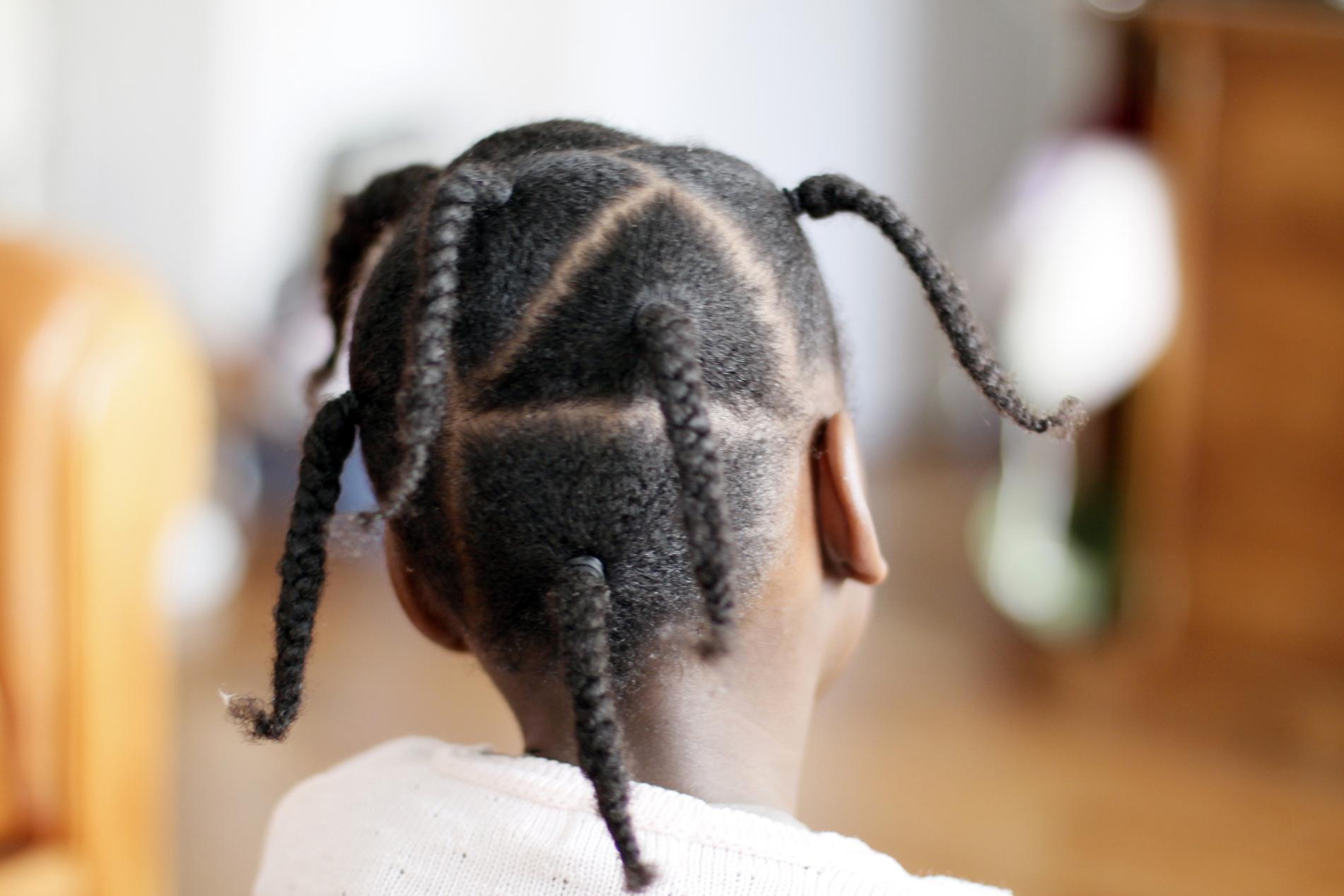
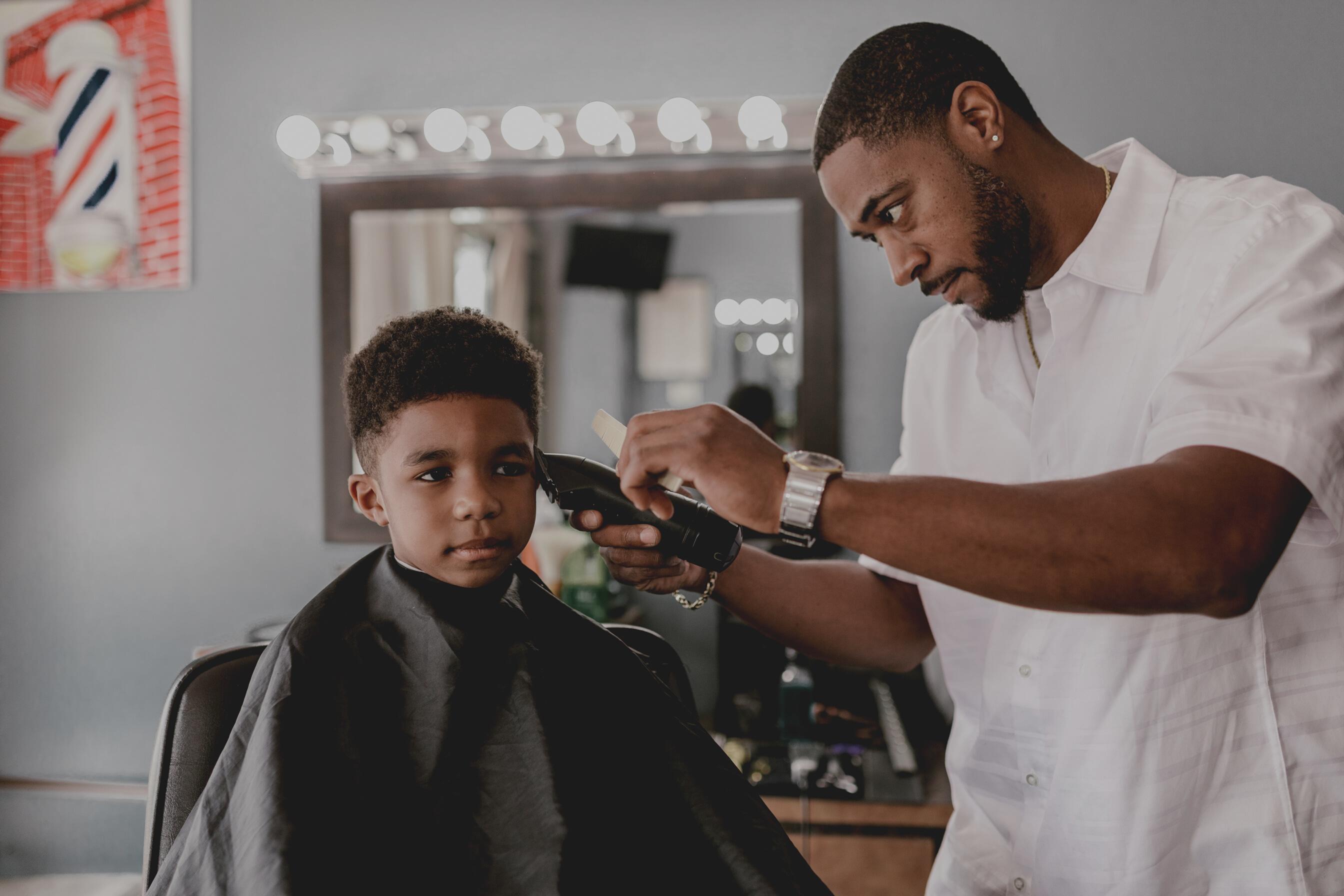

Mark, tell us about SliderCuts
I'm a barber and own a barbershop, SliderCuts Studios, on Hackney Road in Shoreditch
When did you start the Business and why?
I've been cutting hair for over 20 years, but I started my brand SliderCuts about 12/13 years ago when I first set up my own website while I was working at another shop I opened my shop, SliderCuts Studios,
in October 2018 because I felt I has the business acumen to run a successful business I also felt that a lot of black barbershops, unfortunately, lacked a lot of things like professionalism and good client care that I felt I could provide
Also, I kept hearing people say that black businesses couldn't do well It almost came to the point where people associated being black with failure and that's when I felt I had a responsibility to show people that wasn't the case. It's not because of our skin colour why businesses aren't being run well, it's just because of how we are running the businesses
I wanted to be an example to those around me and those younger than me that a black owned, black run and black occupied business can be successful As well as this, I wanted to be able to hire people from the community and give them well paid jobs
Should a Black Boy be taken to a Black Barber? If so, why?
I do think black boys should be taken to black barbershops It's one of the few spaces where you can meet black people from all walks of life; solicitors, judges, retail workers, the heavyweight champion of the world, a street sweeper, postman
People that are working class, people that are middle class. It's a great networking space and place to connect with all types of people, especially people that are doing positive things, some of whom you may not interact with on a day-to-day basis
As well as this, black boys should feel comfortable around other black people, especially when the images they often get of black people, whether it's on social media, TV or in music, seem to portray negative things such as gang life.
I think it's good for them to be around everyday black people, responsible, legitimate, black people to balance this You also don't want to be put in a situation where you're surrounded by black people and a child is feeling uncomfortable or awkward around these people simply because they are black
The barbershop can help to alleviate that and show different personalities past skin colour
What can a Black Boy learn from being in this environment?
I do think black boys should be taken to black barbershops It's one of the few spaces where you can meet black people from all walks of life; solicitors, judges, retail workers, the heavyweight champion of the world, a street sweeper, the local postman, people who are working class, middle class etc
It's a great networking space and place to connect with all types of people, especially people that are doing positive things, some of whom you may not interact with on a day to day basis
As well as this, black boys should feel comfortable around other black people, especially when the images they may get of black people, whether it's on social media, TV or in music, seem to portray negative things such as gang life I think it's good for them to be around everyday black people, responsible, legitimate, black people to balance this You also don't want to be put in a situation where you're surrounded by black people and a child is feeling uncomfortable or awkward around these people simply because they are black. The barbershop can help to alleviate that and show different personalities past skin colour
For Black Boys, how often should their hair be trimmed?
On average, an adult should cut their hair every 2 -4 weeks For young boys, once a month is fine.
Describe/Detail the hair grooming process (the steps e.g. wash, condition, trim)
Before getting a haircut, make sure you wash your hair with a good shampoo
Go to the barbershop and try to make sure you don't sweat! Get your hair cut, shave and/or shaped up.
Then when you get home wash your hair again This time, use very little shampoo because you already washed it before so your hair should be clean. This wash is just to remove any excess hair from your haircut Then finish with a good leave in conditioner to soften and treat your hair, then you're good to go!
Any tips on hair products for Black Boys?
You've got to look at yourself and what your hair needs A good nourishing shampoo is a must. A lot of black boys suffer from dry scalp or dry hair, and a lot of shampoos actually remove moisture which isn't good So a lot of times you need a shampoo that hydrates your hair
I'm actually developing a shampoo that hydrates and moisturises for this very reason So even though it'll clean your hair, it won't strip away the hydration that's needed.
Now, you might be someone who doesn't lack moisture You might have a very oily scalp and find that you need a shampoo that will remove the excess oil. But generally, I would say a shampoo that adds moisture is ideal
After shampooing, you may want to condition your hair to keep it soft and treat any specific issues you might have Then you can finish with a leave in conditioner or cream This is also something I'm developing, a wave cream that's light, glossy and adds moisture because we're always trying to add and lock in moisture with afro hair.
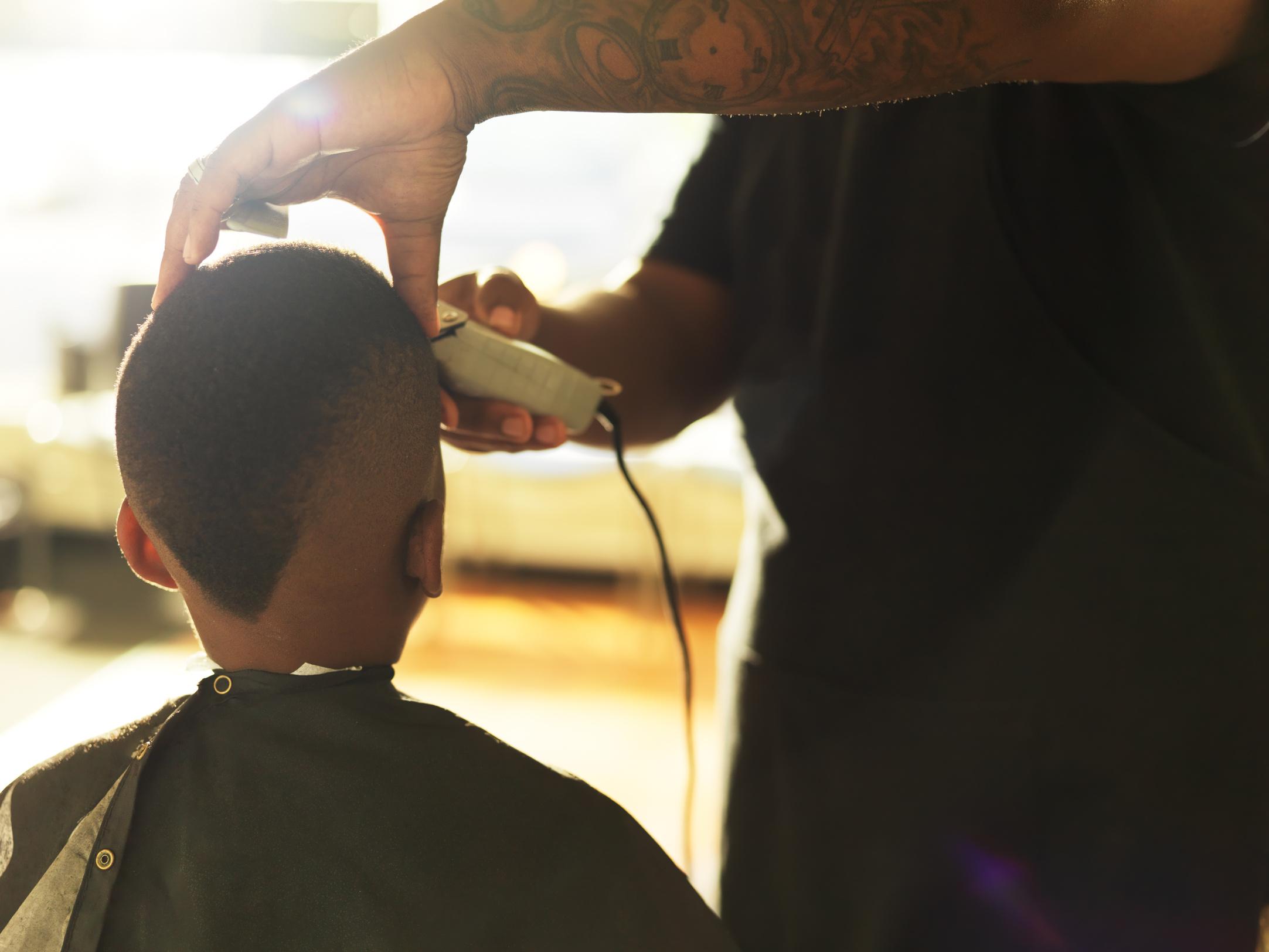
Portia, tell us about Nurture Academy

Nurture Academy is based in East London and is a Social Enterprise I set it up in 2016 after witnessing many individuals struggling to manage their Afro Caribbean hair and lacked confidence in how they felt about their natural hair.
At Nurture Academy we use our skills as a teachers and mentors to change the narrative and bring awareness around afro hair.
We also teach Hair Braiding and Natural Hairstyling skills to children, young people, and adults and we work in partnerships with education institutions, community groups, youth groups, social services, and local authorities
Tell us about your Hair Braiding and Natural Hairstyling Classes
Through our Guided Learning Sessions, we support parents/carers to confidently braid and style their child's hair and we also support the child/young person to confidently braid and style their hair.
There’s a saying that says, when you look good you feel good, and that is why throughout all of our programmes we offer, we always include self-development exercises to help individuals see their beauty from the inside out
We have seen a young person now having the confidence and ability to braid their own hair and feel good about themselves and their appearance
When have also seen that when they are empowered with these skills the difference it makes is fantastic, they perform better at school, at home and begin to blossom within their social groups
Where we support parents and fosters carers on how to care for their child’s hair, they come into an environment where a community is built, new friendship groups are formed, and they know that they are not alone They share the hairstyles they create with one another and encourage each other; they learn how to engage and bond with their child whilst doing their and they gain the know-how and confidence As a result, the children are no longer take to salons, aunties or friends to have their hair done.
More Information about Nurture Academy can be found at www.nurtureacademy.org.uk/services
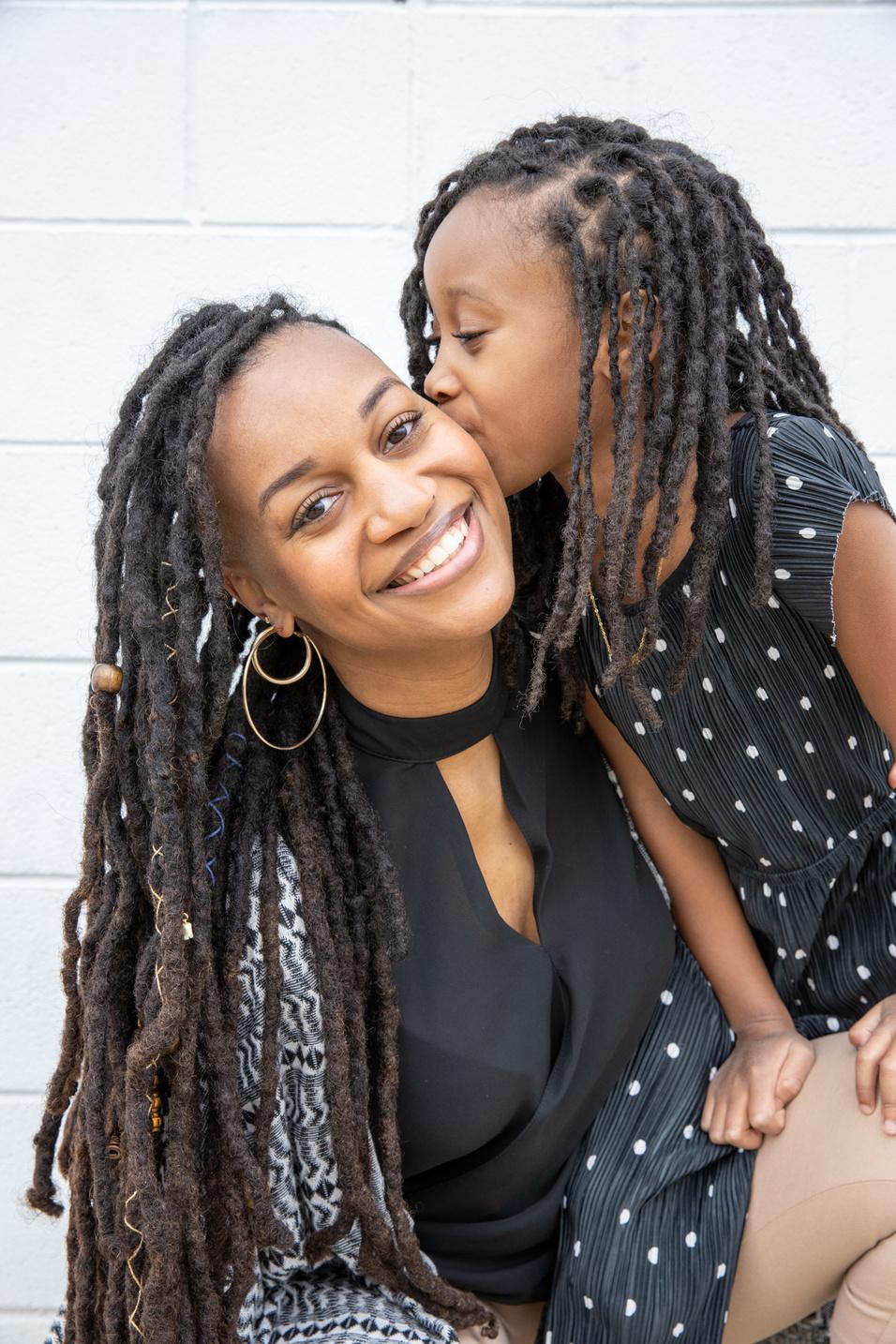
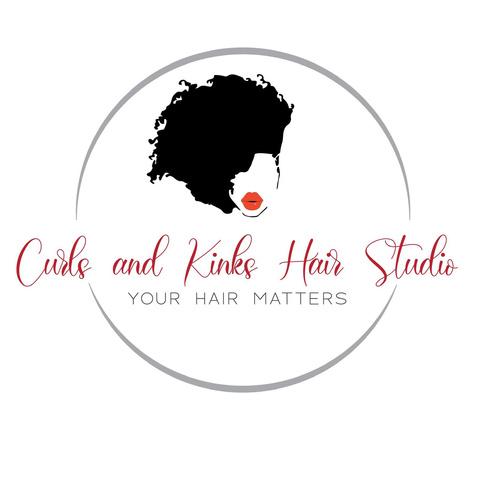
Curls and Kinks is a Unisex Hair Studio, that I own and established in 2020. We specialise in Afro and Mixed textured hair and we offer an array of natural hair styling specialities, which include extensions, locs, colours, cuts, treatments and many more services We’re based in East London
Are you able to share any Natural Hair tips for Afro & Mixed Textured Hair? First up try the LOC/LCO method.
LOC: Liquid/Leave in- Oils – Cream
LCO: Liquid/Leave in- Cream – Oils
This is ideal for defining you curls especially as a Wash’N’Go!
Detangling your hair before shampooing can sometimes be tedious, here’s a simple trick us hairstylist use, Try Pre-pooing; this means use conditioner and a wide tooth comb to detangle the hair in small sections
Use of a satin or silk bonnet/scarf to protect your hair while you sleep
Always hydrate by keeping a spray water bottle nearby.
Moisturize and define curls or kinks using curling creams, butters, custards, curl smoothies or curl soufflé.
Pay attention to your scalp by nourishing with a blend of natural oils We highly recommend our Curls and Kinks hair oils (Mango & Cinnamon or Lavender & Lemongrass)
Develop a hair care routine where you have a treatment ideally every 2-4 weeks Some hair care treatment’s include Detox Clay, Protein, Hot Oil or Combination deep moisturizing treatments
Hair trims are mandatory for hair growth, these can be done every 3-4 months.
Protective Styling & Low Manipulation Styling - This method can be classified into two categories No Manipulated and Low Manipulated. Natalie, tell us about Curls and Kinks
1 2 3 4 5.
No manipulated protective method is basically wearing your natural hair in styles that prevent manipulation, classic examples are 2 strand twist, comb twists and flat 2 strand twists these styles can lead to the promotion of hair growth
Low manipulated protective methods are styles that not only are protective but also put little tension on the hair follicle, such examples include basic cornrows with one ’ s own natural hair or with extensions, crochet braid style, light knotless braid, passion twists, Senegalese twists. Long and heavy box braids or faux locs are beautiful natural looks, but such styles can put serious tension on the hair follicle if constantly manipulated and left in over long periods of time, this can also lead to your hair locing.
Are you able to share any tips on how to maintain Locs?
First use a Clarifying Shampoo to clean and remove dirt and build up. The final wash should be with a Moisturising Shampoo to help soften and moisturise the locs
Whilst the locs are still wet, hydrate and moisture using oils such as Lavender, Hemp, Lemon Grass and Coconut
Strengthen and stimulate your scalp by thoroughly massaging oils into your scalp, such as Mint, Tea Tree, Eucalyptus
Whilst your hair is damp, separate each loc by hand. This step is vital so that locs do not matte together when drying Then style as desired and allow the hair to dry naturally
To lock in moisture as part of your nightly routine wear a silk or satin bonnet/scarf to bed
The insight and expertise shared by Salem, Mark, Portia and Natalie highlight the importance of making sure our hair is cared for by Professionals who not only understand us, but also understand our hair texture and can carefully care for our hair
The information shared also highlights that there is a space for us and those who Care for us, to learn about how to care for our hair, which will help to save on the cost of frequent trips to the Hairdressers or Barbers
More information on Hair Care Guidance along with Black Owned Hair Salons & Barbers can found in our Black Care Experience Directory here which is regularly updated.
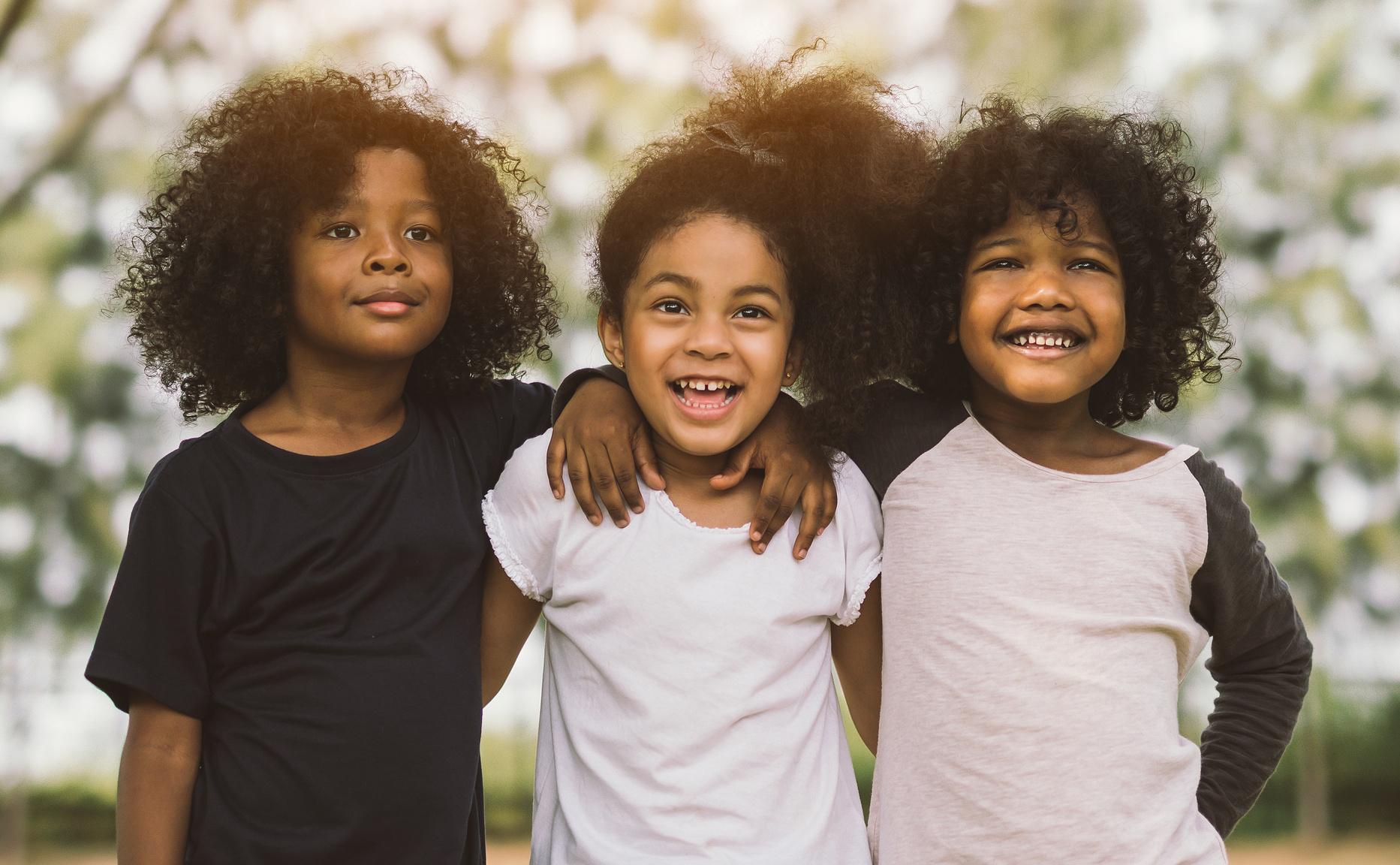
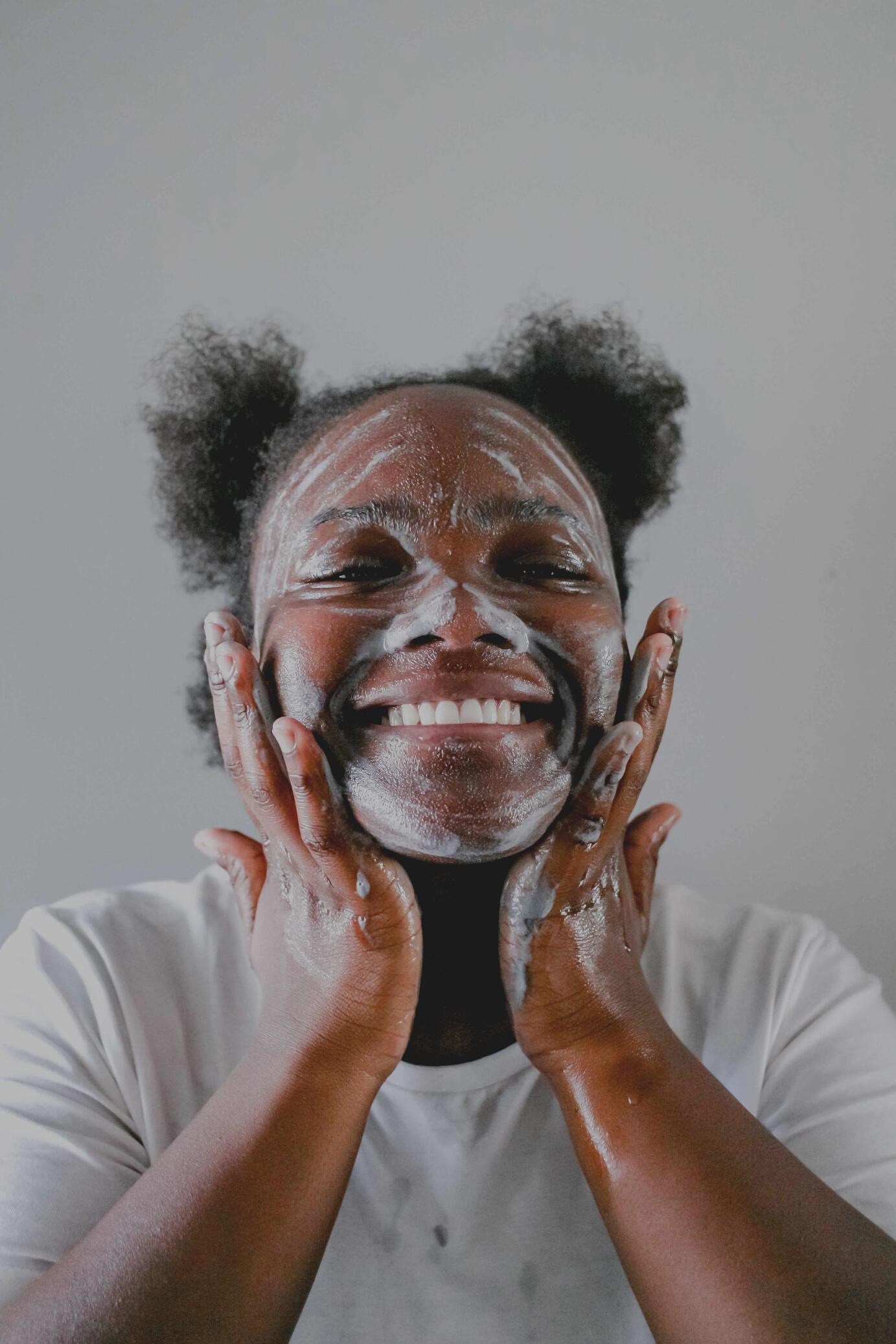
“My Foster Carer, tried to put (cooking) olive oil on my skin and in my hair”
When caring for our Skin it is important to understand that if our skin is not moisturised after swimming, bathing or showering, it can become very dry (ashy) It is also important to understand that as with caring for our Hair, there is no one size fits all approach to caring for our skin, and so finding the right moisturising creams, lotions and oils for each Black Child’s or Young Person’s skin type or skin condition is essential
What Skin Care Products are suitable for Black Skin?
In the Book, Black Children In Care: Health, Hair & Skin, the authors Denise Lewis and Flora Awolaja, state,
“Around 60% of skincare products are absorbed in the bloodstream when you put them on our skin. Therefore, it is important to know what ingredients are in the products you use”.
From here the authors go on to provide insight into why purchasing skin care products that contain natural ingredients such as shea butter, lavender, chamomile, tea tree oil, olive oil, honey, aloe vera and more are the best choice for our skin care, along with this guidance,
“Carers should look for unscented and alcohol – free moisturisers that suit their child’s skin type in order to avoid irritation”.
More Information about the Book, Black Children In Care: Health, Hair & Skin can found in our Black Care Experience Directory here which is regularly updated
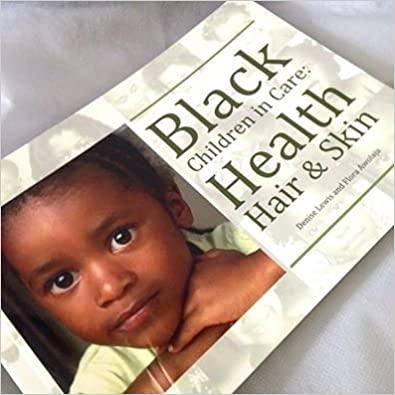
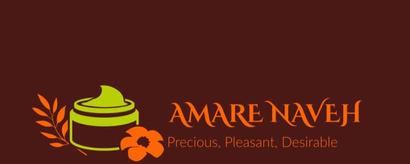
“Love your skin. You’ll wear it for the rest of your life” says Karen Stephen, who used to be a Foster Carer Compass Fostering and is now the Founder of Amare Naveh.
Karen, tell us about Amare Naveh
Amare Naveh is a quality brand with a sole task to make skin care natural and simple with Shea Butter as the starting point and main ingredient for the product range.
Why Shea Butter?
I have always favoured natural products, and Shea Butter is a natural fat extracted from nuts of the Shea tree, which is often used in cosmetics, lotions and other products High concentrations of fatty acids and vitamins make Shea Butter an ideal ingredient for softening skin and it has anti-inflammatory and healing properties; and so using Shea Butter on your body, will condition, tone, and soothe your skin
Understanding how Shea Butter is made and how much work goes into its production, I source Quality Shea butter imported from Africa, mainly Ghana/Nigeria It’s important to me that it come from an ethical source and I advocate Fair Trade.
Are you able to share any personal experiences of how Shea Butter has helped you?
As a child I suffered with Eczema quite badly I remember being smothered in this yellow oily substance. The smell was not pleasant, but the relief it gave to my skin was welcomed In hindsight I’m grateful that my skin was treated with Shea Butter as the alternative was steroid based creams from my GP that had negative side effects.
Using what I have learned about natural oils regarding the benefits and uses, I have combined various good quality oils into a lush body butter to give it a delicate pleasant scent and have created other products in my Amare Naveh Range including soaps, body scrubs, hair products and lip balms, with the Amare Naveh Body Butter proving to be very popular
My family also use the products and I have to say I love getting compliments about how good my skin is looking. Fast forward and here we are sharing our products and making this goodness available to everyone.
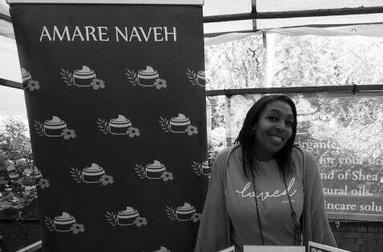
More Information about Amare Naveh can be found at www.amarenaveh.com
From the insight provided from Amare Naveh we understand the need for those who Care for us, to learn about how to care for our skin, as in doing so this will help us to become comfortable in our skin and confident to walk in our natural glow
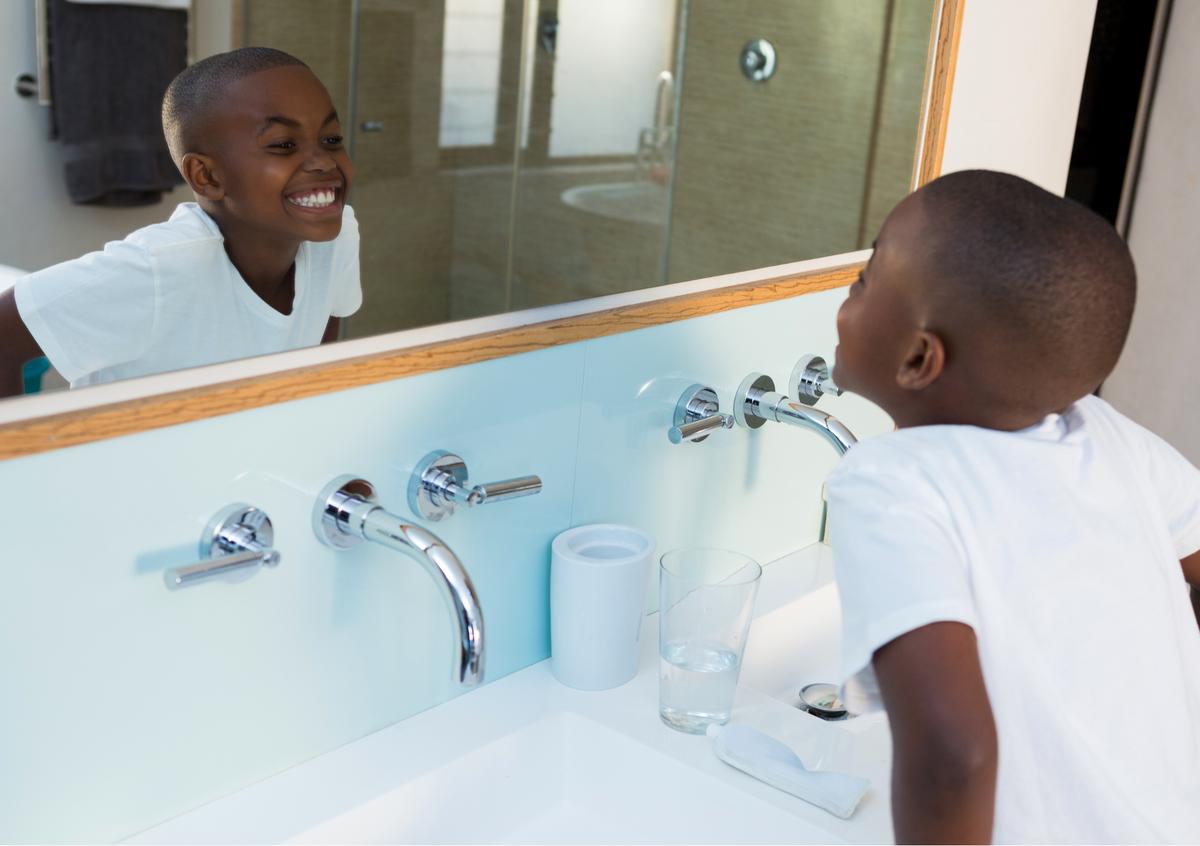
The famous saying tells us that It Takes a Village to raise a child and to relate it to the Black Care Experience, we know that it takes the right village with the right people to raise and care for a Black Child and Young Person in Children’s Social Care

The System under the heading of ‘Corporate Parent’ cannot do this alone With that in mind, our village must include our birth families (where possible), competent and experienced experts, and positive and inspiring role models who can help to keep us connected to our community, culture, identity and heritage
To that end...
“There needs to be a lot of support for black care experienced young people, to ensure they understand their identity, love themselves and go into adulthood without the statistics that are so often seen with black young people”.
Black Care Experience Report 2021
